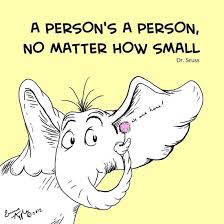Today is Ordinary Time 13, the thirteenth Sunday after Pentecost. Here’s the section for that Sunday in my forthcoming book A Year of Faith and Philosophy.
The appointed Psalm for Ordinary Time 13 Year A is Psalm 139, a meditation on perennial questions that plagued the psalmist three thousand years ago and continues to challenge contemporary humans. Am I good enough? More fundamentally, Do I matter at all?
Just about everyone is familiar with “imposter syndrome,” the conviction that although others believe that I am qualified and skilled at what I do, they would think otherwise if they knew the truth. Psalm 139 offers hope in the face of insignificance.
Perhaps there is one place where I do not need to be an impostor or be overwhelmed by my insignificance, a place where I am known better than I know myself and am valued more highly than I could ever manufacture.
O LORD, you have searched me and known me.
You know when I sit down and when I rise up;
you discern my thoughts from far away . . .
Where can I go from your spirit? Or where can I flee from your presence?
If I ascend to heaven, you are there; if I make my bed in Sheol, you are there.
If I take the wings of the morning and settle at the farthest limits of the sea,
even there your hand shall lead me, and your right hand shall hold me fast . . .
For it was you who created my being, knit me together in my mother’s womb.
The mere improbability that the creator of the universe cares about insignificant little old me is overwhelming. If I were inclined to be an atheist, or at least an agnostic, it would probably be because of this very point—the idea that God cares about human beings in any specific sense at all. Most of what we observe and experience screams against it. Our obvious insignificance screams against it. As the seventeenth-century mathematician and philosopher Blaise Pascal put it, “the eternal silence of these infinite spaces frightens me.”
 My sons grew up on the wonderful books of Dr. Seuss; Horton Hears a Who was one of their favorites. Horton the Elephant, while splashing in a pool, hears a small speck of dust talking to him. He comes to realize that the voice is coming from a small person who lives on the dust speck; indeed, the speck is actually a tiny planet, home to a community called Whoville, the home of microscopic creatures called Whos.
My sons grew up on the wonderful books of Dr. Seuss; Horton Hears a Who was one of their favorites. Horton the Elephant, while splashing in a pool, hears a small speck of dust talking to him. He comes to realize that the voice is coming from a small person who lives on the dust speck; indeed, the speck is actually a tiny planet, home to a community called Whoville, the home of microscopic creatures called Whos.
The Whos know that they are vulnerable and exposed to possible harm in a dangerous world; the mayor of Whoville asks Horton for protection, which Horton happily agrees to provide. He places the Who-planet on a clover that he proceeds to carry in his trunk as carefully as a waiter carrying a tray of crystal champagne glasses. Each existing thing is the center of its own universe of interests, desires, and concerns—but each existing thing is also just a speck in the universe of possible things. As Psalm 139 tells us that,
You have formed my inward parts;
You have formed me in my mother’s womb . . .
My frame was not hidden from you,
When I was made in secret
And skillfully wrought in the lowest parts of the earth.
Everything is at the same time both insignificant and unique. The challenge is to keep both of these in mind simultaneously.
As Horton’s story proceeds, his fellow jungle animals refuse to believe that the Whos exist, believing rather that Horton is crazy. In scenes reminiscent of grade school playgrounds, various animals ridicule Horton, eventually managing to steal his Who-bearing clover and hide it from him in a large field of clovers. After a long search, Horton rescues the frightened and shaken Whos; at his prompting, they finally prove their existence to the still skeptical jungle animals by making as much collective noise as possible until everyone can hear them. Now convinced of the Whos’ existence, all the animals vow to help Horton protect the tiny community.
Each of us is both insignificant and infinitely precious, no matter what current circumstances might indicate. The Whos, upon discovering just how vulnerable and fragile their world is, are discovered by someone greater than themselves, someone willing to put himself on the line again and again to preserve their special existence. It’s a wonderful retelling of a story that generations have embraced. “A person’s a person no matter how small,” after all.
For reflection: Central to both Jewish and Christian faith is the tension between God’s transcendence (wholly other) and God’s immanence (intimately present). How does this tension show up in your faith journey?











